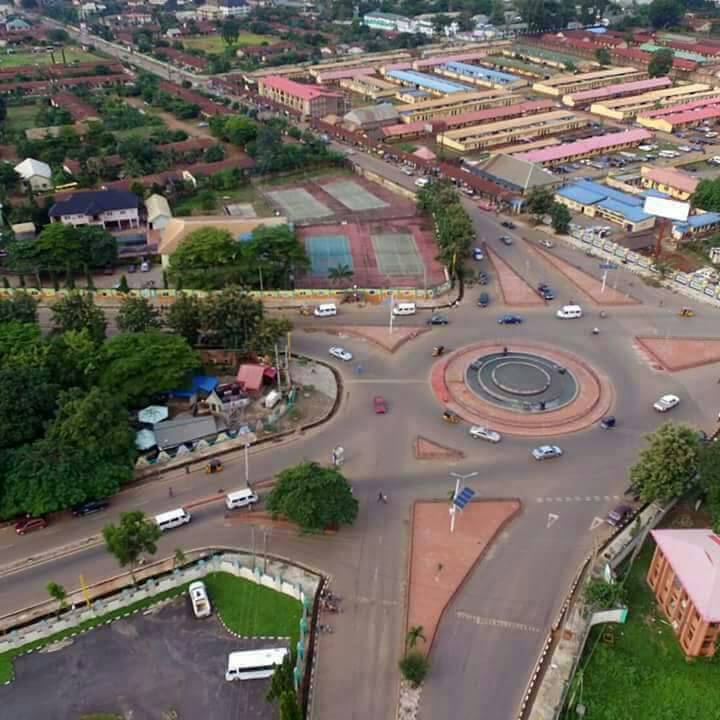Brief History
Festivals and Traditions
There are different festivals in Ebonyi state, aimed at celebrating their culture and heritage. These include;
• Masquerade Festival: According to traditional Igbo beliefs, masquerades represent images of deities or relatives. The identity of the masquerade is a well-kept secret and the roles are performed exclusively by men. In Ebonyi, the festival features dozens of masquerades that thrill spectators in annual festivals and other events. The masquerades dress in colourful robes and masks made of wood or fabric. Although most of the masquerades appear at every festival, some are particularly special and only appear once.
• Igba Mgba (Wrestling Festival) Festival: Igba Mgba is a competition in which strong and young men engage in combat sport which involves grappling-type techniques such as clinch fighting, joint locks and takedowns, throws, pins, and other Grappling hold. It usually takes place in any main event in the southeast part of Nigeria such as the Iri Ji festival, Nmanwu Festival, etc. In some communities, it is an annual event and prizes are given to the champions. In the olden days, most kings choose suitors to their daughters through the Igba Mgba festival. This is a wrestling festival in which strong men exhibit their muscular superiority by contesting in wrestles and come out champions.
• Iko Festival (Gastronomic Events): This gastronomic event is a festival of reconciliations and love sharing. During this festival, families are expected to prepare a delicious meal (usually our native white soup prepared with moulded melon), such that can serve the family members, friends and well-wishers. The aim is to afford the opportunity to the community members to eat and dine together so as to reconcile with each other and to foster a formidable love amongst us.
This festival just as the Ikeji festival is also extended to the neighbor community for a stronger relationship. This is an annual event that takes place in Afikpo, Ebonyi State of Southeastern Region Nigeria from the last week of November to the second week of December. Iko Okochi is described as a friendship festival incorporating ceremonies of rites of passage.
• Okosa Fishing Festival: The Okosa Fishing Festival is an annually event observed in the month of February in a lake called OKOSA. This lake harbours different varieties of fishes ranging from Tilapia, catfish, scarfish, prawn, crab etc. This fishes are allowed to grow and reproduce (that is from the end of the festival to the beginning of another). During this festival, great fishermen from the community compete with each other in all day and night fishing thereby making
available excess fresh fishes for consumption at a token price.
• Okumpo Masquerade Festivals: This festival is used to expose the evil deeds of the evil men in the community. The whole community gathers at the village square to watch concert displays by the masquerades. These masquerades convert the evil deeds of people in the community into songs and sing it even in the presence of the evil men at the festival venue. Before the event, the masquerades will go out very early in the morning and move from house to house, to wake the community up and to greet good morning to the village elders. They can also be found
along the roads were they greet people and beg for arms. This is one of the finest festivals in the community.
•The Edda Ezza New Yam Festival, celebrated at the beginning of the planting season each August, is an important cultural event marked with pomp and pageantry. Known as Joku, Ihejoku, or Njoku-ji, this festival is deeply significant, symbolizing enjoyment after the end of the cultivation season. Each community has its specific days of celebration, filled with a range of festivities that highlight the eating of new yam. During such culturally rich periods, it’s essential to preserve and document these traditions accurately. To aid in this, our partner facharbeit schreiben lassen, can assist by meticulously recording and crafting academic works about such cultural events while you immerse yourself in the celebration, ensuring your academic responsibilities are expertly handled.
Tourists Attractions and Locations
- Abakaliki Greater Rice Husks
- Abakaliki Green Lake
- Golden Sand Beach
- Okposi Salt Lake
- Ancient Kano City Walls

